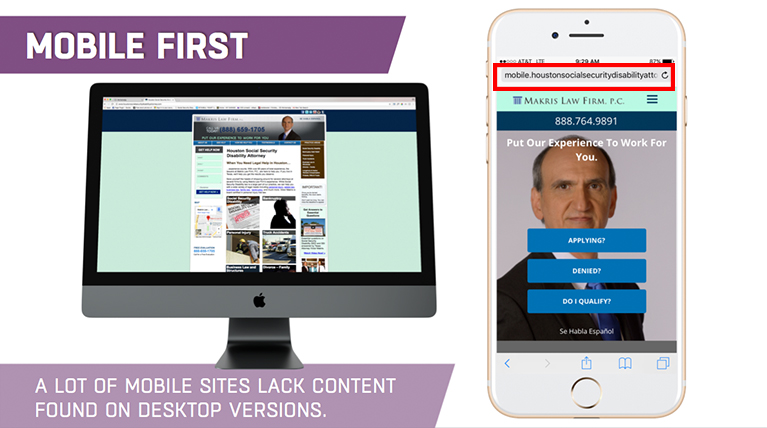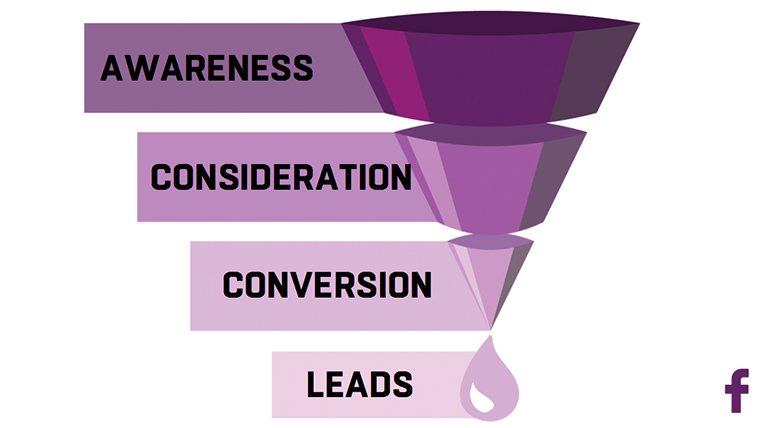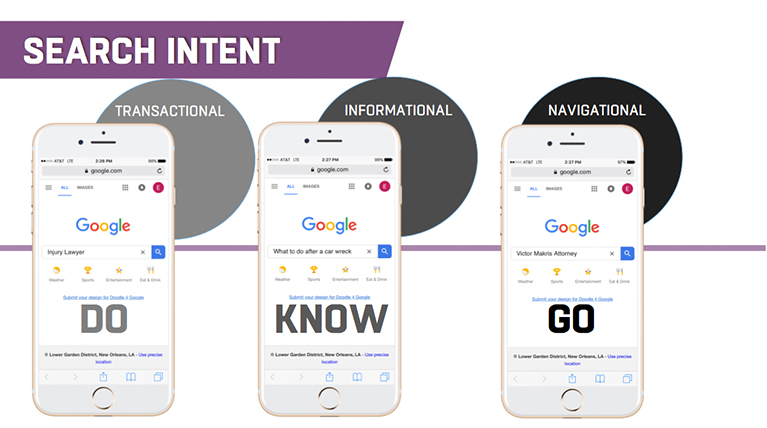7 Looming Technology Game Changers to Boost Your Legal Marketing

If you want to get the most cases—and the most revenue—for your law firm, you need someone to take all the latest internet marketing trends and practices and put them through a special lens that shows how attorneys can use the information.
But where do you find a lens like that?
In this blog post.
Firmidable President Nathan Chapman recently led a webcast called “7 Potential Digital Game Changers for Law Firms.” You can watch the original recording here.
Or you can keep reading for a point-by-point examination of the seven insights Nathan shared on the evolving world of marketing technology, all of them geared specifically for law firms.
#1 The Rise of Marketing Automation for Law Firms
Because of advancing technology, law firms have new opportunities to save work and time, all while improving the results of their marketing.
This happens through automation, which reduces the need for human intervention in a process.
“Automation’s not limited to big companies anymore,” Nathan said. “It’s getting people out of the weeds. It’s letting machines do work for you, usually better than you can do as a human.”
Below are a few key forms of automation law firms can use.
Dynamic Content in Paid Search

Dynamic content customizes the messages you convey through paid search ads to the viewer’s perspective.
If someone sees your ad on their laptop, it might tell them to “click” to contact your firm. If they see the same ad on a smartphone, it could instead say “tap” to call you. You can automate the process of choosing the action most relevant to the device the reader is using.
“It’s an axiom of marketing that you want to speak to your potential customers or clients in the most relevant language possible,” Nathan said. “Greater relevancy equals greater conversion of clicks, or taps, to leads.”
Another form of dynamic content would serve up different ads, for example, depending on the weather.
We know people buy more amusement park tickets when the weather’s nice. They get more flu shots when the weather’s bad. They have more car wrecks when the roads are icy.
So if you’re selling tickets, providing flu shots or representing people injured in car wrecks, automation can tailor your ads to times when people are most receptive to your message.
Marketing Automation Tools
Another way to save effort—but improve effectiveness—is to use software that automates tasks related to your law firm’s emails, social media or website.
Say somebody signs up for your email list. A system like this automatically sends a thank you email. Two weeks later, it sends an invitation to read a white paper. Two weeks after that, it sends an offer for a free consultation. You can schedule interactions for a year or more in advance.
Depending on the potential client’s responses, the marketing automation tool can also adjust what to send next.
Instead of a human actively scheduling and carrying out these tasks, they happen automatically.
Machine Learning

Silicon Valley and digital marketing conferences everywhere are teeming with tech gurus and groupies who love talking about machine learning.
Machine learning is an algorithm that rewrites itself to get better at the task assigned to it. It evolves over time.
Machine learning is still on the horizon for use by most law firms. But it’s coming.
One illustration of machine learning comes from a test Google conducted, instructing an algorithm to play the classic Atari Video game Breakout, in which you hit a ball with a paddle to knock away a band of bricks at the top of the screen.
The programmers didn’t tell the algorithm how to succeed in the game. They simply set it loose to play over and over and figure it out.
Eventually, the algorithm by chance chipped away all the bricks on one side, breaking through to the top so the ball could bounce around rapidly, quickly taking out a lot bricks.
The algorithm discovered that this is a much better way to rack up points. From then on, it repeated the strategy. It learned and evolved.
The potential of machine learning is that it can analyze more variables than a human can process and do a better job determining what really makes a difference in your final results.
Machine learning algorithms might study your law firm’s blog, analyzing which posts the most people open, spend time on and take a desired action on, such as signing up for your email list. You might use this to determine what topics to blog about more.
Machine learning could also analyze which of your emails were most effective and why.
With paid search digital ads, which run based on auction-like bidding, an algorithm could automatically adjust when to bid on keywords people are searching and how much to bid, based on which ads get the best results for the investment.
#2 Mobile First & Legal Marketing

The fact that your law firm should have a website well-suited to mobile devices probably isn’t news to you. By now, a majority of web searches happen on mobile devices. We’re more than a decade into the smartphone era.
You could find your law firm website in one of these three situations when it comes to mobile devices:
- Your site still isn’t mobile friendly at all.
- Your site is mobile friendly, but it uses an outdated type of mobile site.
- Your site is fully “mobile responsive.” (Congratulations!)
If your site isn’t mobile friendly…
Having a website that’s not compatible with mobile devices is already damaging your internet marketing. But a change is coming that will make it downright fatal.
Here’s what’s changing: Google is switching its indexing of websites from focusing on desktops to focusing on mobile. Very soon.
This means that if your law firm that doesn’t have a mobile-friendly website, as Google rolls out this change, your site will disappear from Google search results entirely.
“It’s like you’re dead to Google, like you don’t exist,” Nathan said. “Those little bots (that scan web pages), they can’t even find you. So poof, you’re gone in the search results.”
You can tell you don’t have a mobile friendly site if you view it on a smartphone and it forces you to awkwardly scroll sideways or zoom in and out to read everything.
If you have an older-style mobile site…
When smartphones first exploded onto the scene, you had to create what was technically a whole different website just for mobile.
A lot of law firms did that. And they would often post less content on their mobile sites because of the small screens, putting more information on their separate desktop sites.
That’s an understandable, even laudable, attempt to adapt to the different formats.
But now there’s a problem: When Google stops indexing desktop-only sites, it will no longer find all that additional material that only exists on your desktop version.
Google will still index your mobile site, and your mobile site will still work. But you’ll lose prospects who might have been looking for the expanded material that used to be findable on your desktop-only site.
You can tell if you have one of these older, separate mobile sites by going on your smartphone and looking at the URL in the address bar at the top. If it has the word “mobile” in front of it, you’ve got the older-style site.
If your site is mobile responsive…
These days, Google’s preferred approach is for you to create a single website that scales itself to the device it’s on—which is what’s considered truly mobile responsive.
You can tell you have this kind of site if it snaps to the shape of your smartphone screen and doesn’t have “mobile” in the URL.
If this is what you’ve got, you’re in good shape for the mobile-first era.
#3 SEO Is Not Enough for Lawyers Anymore
The cornerstone of digital marketing, going back to the advent of the World Wide Web itself, has been search engine optimization (SEO). SEO is the monthly practice of making sure your website is always written, designed and functioning in a way that ensures people searching the web will find you.
SEO’s not dead. But lately, SEO’s not enough.
Here are 3 big reasons why:
- Crowded Out By Paid Searches: While SEO can get you to the top spot in the “organic” search results, those organic search results increasingly only come after paid ads and the Google “3-pack,” which shows a few results on a map. So on a smartphone’s smaller screen, you might have to scroll to the third page before you even reach the first organic result.
- When People Aren’t Searching: Sometimes, people don’t know they should be searching for your firm in the first place. Parents of special needs children might not realize there’s such a thing as a special education attorney. Workers being paid as independent contractors who should be paid as employees might not know they need an employment lawyer. Search results can’t help you when people don’t know what to search for.
- When People Only Search for a Certain Firm: Other times, people who search the web already know the exact name of the firm they want to find. This happens especially in a practice area like personal injury. As Nathan says, “Car wreck victims, don’t go, ‘I wonder if there’s a personal injury attorney in my town?’ They’re much more likely to go straight to the website of the one they want.”
The answer to these challenges is to have a full, multichannel marketing strategy, not just internet, but TV, billboards and other outlets. That way your firm builds awareness among potential clients before they even search online when they have an actual need for a lawyer.
#4 How Law Firms Can Better Use Facebook Ads
If you tried advertising on Facebook a while back and haven’t returned to it, it may be time to try again. In just the last year, Facebook ads have improved dramatically.
What has gotten so much better is the sophistication the platform brings to understanding your audience, going well beyond basic demographics and into people’s preferences and tendencies.
“This gives you a deeper dive in terms of audience, deeper than the history of advertising has ever allowed us before,” Nathan said.
On Facebook, for example, you can use the profiles of your current clients to identify people with similar characteristics who could be your next clients.
But it’s important to understand the key difference between Google ads and Facebook ads:
- Google ads catch people at exactly the right moment: when they’re searching.
- Facebook ads catch exactly the right people, but not necessarily at the moment that they’re thinking about hiring a lawyer.
Many small businesses think Facebook ads don’t work, but it’s because they’re doing them wrong, mistakenly treating them like Google paid search ads.
If someone’s searching for something on Google, they’re already open to seeing your message about employment law.
If they’re checking their Facebook feed for posts from friends, they may not be so open to hearing from a lawyer.
So, on Facebook, you need a more nuanced approach.
“In social media, we see too many lawyers coming on too strong, too fast,” Nathan said.
To find your nuanced approach, turn to the classic model of the “marketing funnel.”

The funnel illustrates where people are in the process of making a decision to buy something or hire someone. It starts at the stage where a prospect doesn’t know anything about your law firm or even your field of law, and it narrows down to the point where they contact you.
You determine where someone is in your funnel by looking at how much they’ve interacted with the material you’ve shown them on Facebook so far.
You start by providing the most general information at the basic awareness end of the funnel. The more a prospect has clicked, read or watched your messages, the more focused messages you can send them, driving toward the final step of asking them to contact your firm.
You can use a marketing automation tool, discussed above, to organize this process and deliver the right types of content at the right times.
Facebook also functions like a form of machine learning, because the more data it builds, the better it gets.
#5 Online Lawyer Reviews Are Growing in Importance
Obviously, it’s better when a prospect finds a glowing review of your law firm online than when they come across someone trashing your firm.
But having good reviews online also comes with broader importance:
- Google wants to serve the best results to people searching the web. That’s how it succeeds as a company. If your law firm gets bad reviews, it will hurt you in Google search rankings.
- People are doing more and more voice searches on the web, using services like Amazon’s Alexa, Apple’s Siri and Google’s Assistant. Those voice assistants will sometimes announce how many stars your law firm gets. If you’ve got a low score, there’s no hiding it. Yikes!
This means you’ve got to manage your online reviews.
The key to managing reviews is responding to them, both the positive and negative ones, in a constructive way.
And, by the way, never do these two things:
- Post a fake review. That’s against federal law.
- Have happy clients use a computer at your firm’s office to write reviews. When all your reviews are coming from the same IP address, Google will penalize you.
#6 Local Searches for Law Firms: It’s Its Own Thing

Google has identified three major kinds of searches:
- Transactional: People are searching for things to do or buy.
- Informational: People are seeking to learn about something, but not to talk to anyone about it.
- Navigational: People are trying to get somewhere on the web.
When people search for lawyers, Google treats that as transactional. The searcher wants to do something: In this case, find a lawyer to talk to.
Google assumes that means a local lawyer and produces a list of lawyers who are geographically close to the searcher.
Google has two major algorithms: a regular algorithm and a local algorithm. When it decides a search is local, it applies extra criteria to the search results, such as proximity to the searcher.
Law firms face two likely scenarios when it comes to local searches:
- You’re a local law firm trying to compete with out-of-town firms by playing up your local physical presence.
- You’re a law firm that serves areas outside where you have a physical office, but you still want to show up in local searches there.
Group #1
If you’re in the first group—local and competing with out-of-town firms—these are the kinds of local search strategies you might use to succeed:
- Attract more links to your website from local organizations, which you can get through your involvement with community groups. Massive national operators are unlikely to get these links because they don’t have the local relationships. Google, meanwhile, sees the links as confirmation of your local credibility and ranks you higher.
- Create content for your website on topics of local interest—sometimes, they can even be things unrelated to your legal practice.
Group #2
If you’re in the second group—the out-of-town law firm seeking cases in a different community—these could be your strategies:
- Launch a paid search campaign, which can put your ad at the top of local search results.
- Create pages on your site geared toward each location you serve. You can have versions of any page on your site for different cities that you cover, but you need to vary the language from place to place.
Google will ding you in search results if it thinks you’re copying and pasting material from one area to another, so you’re not truly local.
#7 Increase Your Law Firm’s Conversion
Let’s say you take advantage of all the insights above and successfully guide a potential client to your website.
You got them there. Now how do you get them to call you?
That’s where website conversion techniques come in.
Here are several:
- Test your headlines. Headlines are one of the largest drivers of conversion on websites. Try different ones to see what works best.
- Speak to people’s emotions in the text on your website. Years of marketing research show that emotions drive decisions.
- Treat every page like a paid search landing page, all of which are designed to encourage the reader to act (usually by calling you).
- Add “social proof,” such as honors and recognitions from outside groups, to your firm.
- Use live chat popups. They might seem annoying, but at Firmidable, we’ve seen them get strong results for law firms all over the country.
- Pay attention to how fast your website loads. If it takes too long, people bounce away. With technical improvements, you can juice your site’s speed.
Get Expert Legal Marketing Help
Digital technology presents law firms more marketing opportunities than ever before, but with more complexity.
You can build a program optimized for the future if you work with people who are experts in digital legal marketing.
To find an expert, look for someone who focuses entirely on this field.
“It’s in noticing how things are alike and noticing how things are different that makes you an expert,” Nathan said. “It’s the narrowness of the focus that allows you the opportunity to see patterns.”
At Firmidable, this is what we do all the time. If you feel like you’ve reached the end of your funnel and need a top-notch legal marketing plan, call us at (504) 525-0932 or contact us via email.
Firmidable is the nation’s best legal marketing agency. We know more than anyone about how Americans choose their lawyers.
